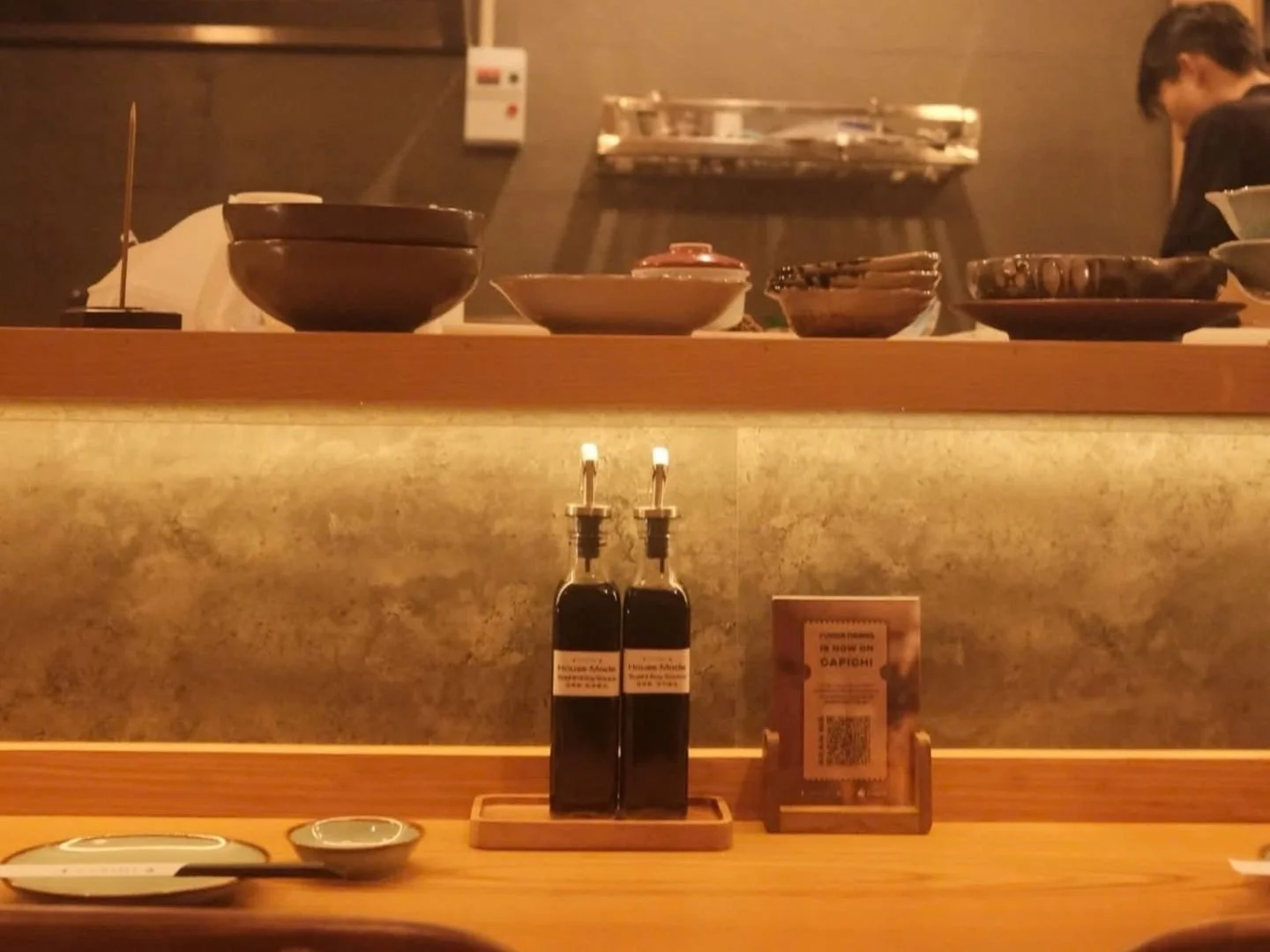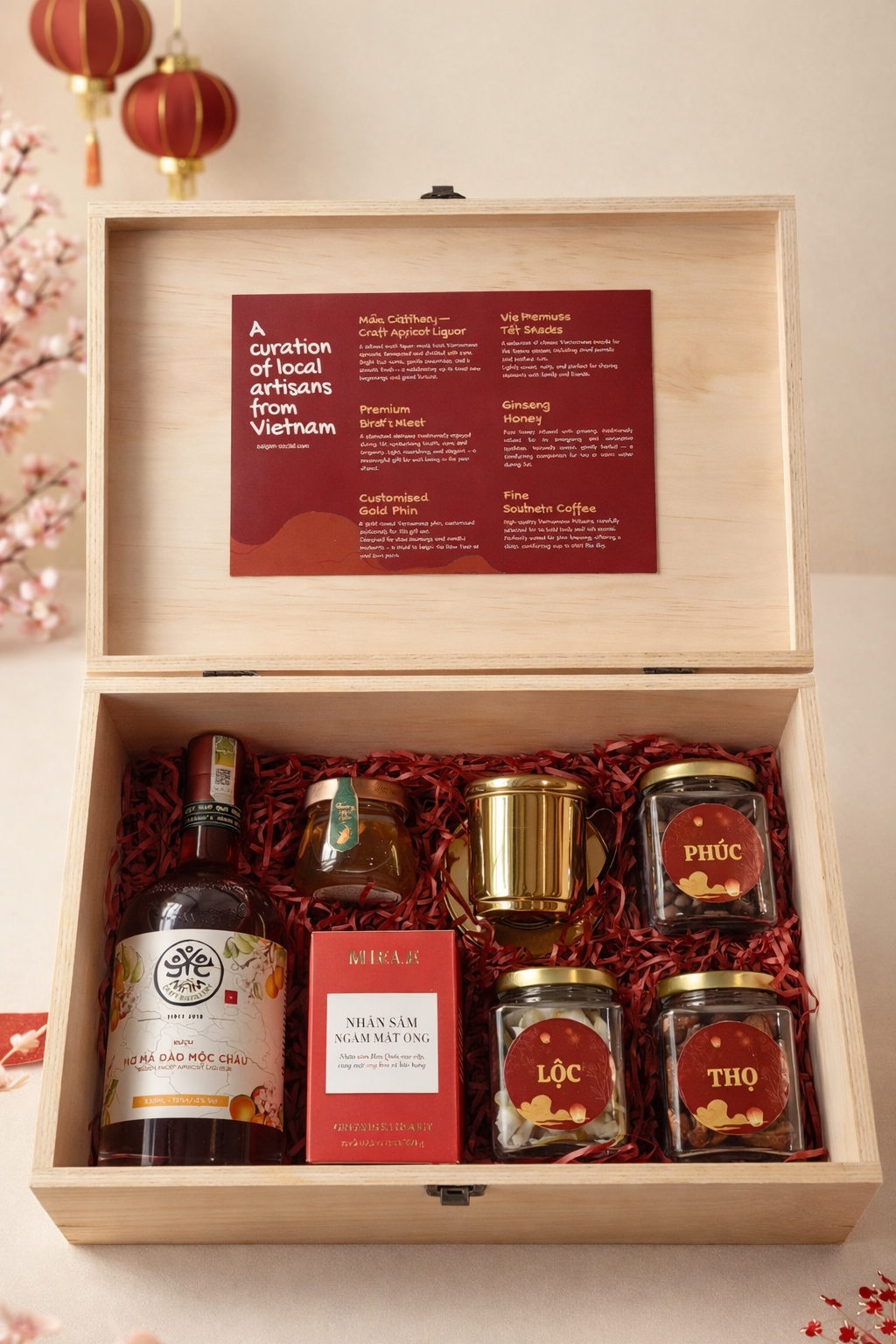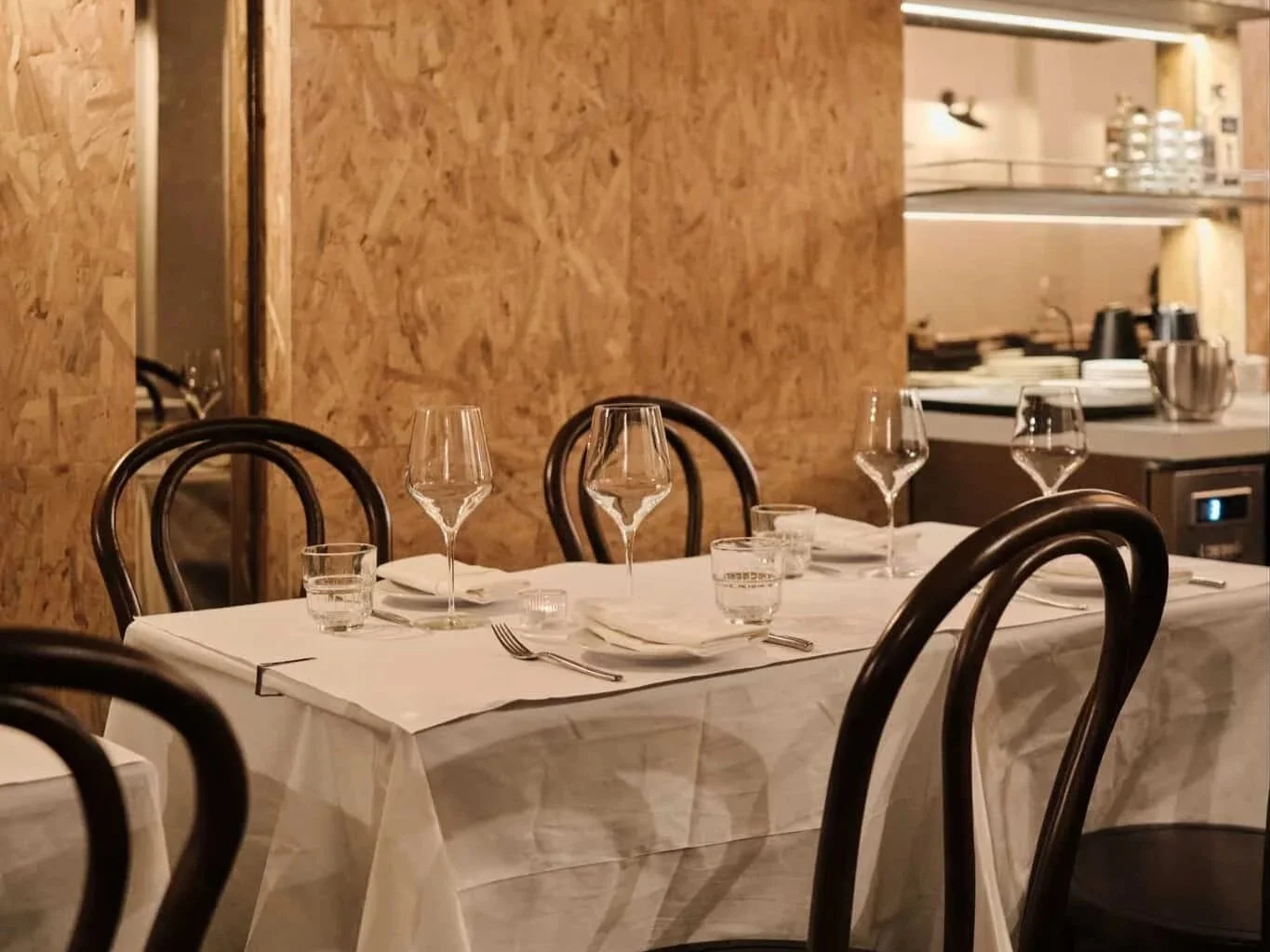Taking the Heat: Bridging the Gender Gap in Vietnam’s Hospitality Industry
In Vietnam, Women’s Equality Day is a national holiday designed to celebrate and acknowledge the role of Vietnamese women in society and their efforts towards nation-building. In Vietnam, this day is typically celebrated by gift-giving - flowers, cakes, chocolates, candles.
While these gestures are often appreciated, I believe bridging the gender gap lies in embracing women and their voices, listening to them, amplifying them and helping them. Studies have shown that kitchen equality brings together talented chefs and teams as well as merit-based on achievements and talent rather than gender. With greater diversity, innovation and creativity will follow.
On this note, I have chosen to spotlight and amplify the voices of women in different sectors of Vietnam’s hospitality industry to shine light on their struggles, challenges and wants so we can all play a more actionable role in increasing diversity and bridging the gender gap in Vietnam’s hospitality industry.
Challenges preventing women in Vietnam from entering the hospitality industry
While the benefits of gender equality are apparent, the ground reality reveals otherwise. The hospitality industry in Vietnam, albeit made up of 70% women, is deceivingly patriarchal with only 20% of general manager roles being awarded to women. One of the biggest reasons for this statistic is the traditional and inherent prejudice that comes with being female in Vietnam.
Societal and family pressure
For Giang Sinh Pham, Head of Channel Marketing at Singha Beer, her hospitality career began with a rocky start. Her family disapproved of her joining the industry at such a young age and rendered it ‘unfit and unsafe for a female’. She also shared how her mother was concerned about what society and family members would think of her working in the alcohol industry.
Furthermore, stemming from Confucianism, Vietnamese culture is deeply anchored in the concept of filial piety. Pham recounts the guilt she had to bear when she moved away from her family in America to pursue her professional endeavours in Vietnam. ‘My move caused friction between my parents and me, but I did not want to do anything that I will regret in 20 years’ says Pham.
For Giang Sinh Pham, Head of Channel Marketing at Singha Beer, her hospitality career began with a rocky start.
Her family disapproved of her joining the alcohol industry and rendered it ‘unfit and unsafe for a female. Her mother was also concerned about what others would think.
Giang Sinh Pham, Head of Channel Marketing at Singha Beer
Unsurprisingly, the societal pressure of settling down and having kids is a prevalent feeling for many women in the industry. ‘There have been many times I wanted to return to the stability of a job in medicine. However, I’ve preserved as we have a great team of women that not only support me but also believe in our vision to support other women from disadvantaged backgrounds.’ says Diana Park, Founder of Chill Kombucha.
Work-life balance
For Mary Vu, Operations Manager and Partner of MAD Wine Bar, striking a healthy work-life balance poses a huge challenge. She believes more flexible working hours need to be introduced in order to attract and retain more women. ‘Women should not have to choose between their career and personal life,’ says Vu.
Another female industry leader who shares similar sentiments is Leo Huynh Trinh, ex-General Manager of Broma: Not A Bar, a popular nightlife destination in Ho Chi Minh City. Drawing a comparison to traditional 9-to-5 industries, Huynh says ‘The hospitality industry in Vietnam is less forgiving to women with children. There are policies and support in place for women returning to the office that do not exist in the hospitality industry. Thus, many women in Vietnam often quit their jobs after giving birth’ says Huynh.
More flexible working hours need to be introduced in order to attract and retain more women. ‘Women should not have to choose between their career and personal life’.
- Mary Vu, Operations Manager and Partner of MAD Wine Bar
Mary Vu, Operations Manager and Partner of MAD Wine Bar
An ‘unsafe’ environment
As a petite Asian girl in the kitchen, Chef Thao Le, Head Chef of Nage Eatery and Saigonese Eatery admits to being bullied in her younger days. ‘I was stressed and scared every time I went to work. I wanted to quit many times but a colleague of mine told me that every kitchen is different and to press on - so I did’. A decade later, Na is at the helm of two restaurants and focuses on improving her work-life balance and juggling her duties as a mother, wife and chef-founder
Another challenge women face is dealing with unruly and drunk customers, especially in the nightlife industry, says Huynh. According to her, ‘not many establishments can afford to hire security personnel and oftentimes I have to handle drunk and unruly guests on my own’ .
Leo Huynh Trinh, ex-General Manager of Broma: Not A Bar, a popular nightlife destination in Ho Chi Minh City.
What More Can Be Done to Attract and Retain Women in the Hospitality Industry
There is no shortage of young female hopefuls in the industry. Women are well represented at hospitality and culinary schools. But post-apprentice dropout rates are high.
“Diversity and balance are the keys of a better world and better thinking,” says 2016 Best Female Chef Dominique Crenn (Atelier Crenn, San Francisco). While things are changing around the world and structural sexism has largely disappeared within the industry, there are still many issues that need to be reflected on in order to attract and retain more female talent.
Stronger representation of female leaders and their achievements in the media
For Vicky Lam, General Manager and Co-Founder of CTY Kitchen and Bar, having few female role models to look up to in the industry deterred her from entering at first. ‘The stark contrast between the number of male and female leaders is one of the reasons why I am so motivated to excel in the industry’. On the same note, Huynh believes a stronger representation of female leaders in the media as well as acknowledgement of female talent and achievements, are paramount in bridging the gender gap.
While Vietnam has taken huge leaps in its efforts towards gender equality, the numbers reveal a different story. Most recently in 2017, Lam recounts a story of how a customer questioned her competence because of her gender. After, she made it her mission to change the narrative and stereotype of women in the industry. ‘If I’m going to let my gender define me in what I do, I’m going to make sure it’s for all the right reasons.’
‘If I’m going to let my gender define me in what I do, I’m going to make sure it’s for all the right reasons.’
-Vicky Lam, General Manager and Co-Founder of CTY Kitchen and Bar
Vicky Lam (Source: Tin Phung)
Establish strong female networking groups and mentorship
Leading chefs such as France’s Anne-Sophie Pic (Restaurant Anne-Sophie Pic), Elena Arzak and Parisian Adeline Grattard (yam’Tcha) have admitted to feeling a need to ‘get on with the job’ with no time for networking or self-promotion. Unlike their male counterparts, they don’t have a girl’s club.
Over the past few years, female-driven networks championing advocacy and leadership amongst women in the hospitality industry have sprung up. Notable mentions include Parabere, Women Chefs & Restaurateurs and the just-launched Women in Hospitality.
‘The food and beverage industry is very challenging, not only physically, but mentally and emotionally. Having more mentors or qualified support would be a game-changer. I see an opportunity for growth in groups that provide mental and emotional support guided by qualified and/or experienced individuals’ says Park. For Lam, she attributes her success and resilience to strong female figures such as her mother in her family.
Diana Park, founder of Chill Kombucha, believes having more mentors or qualified support would be a game-changer for Vietnam.
‘Vietnam is one of the fastest-growing economies and with more foreign interest in Vietnam---communication amongst other skills are greatly needed to prepare individuals for globalization within the industry’ says Park on the value female industry groups can bring.
Challenge stereotypes
For Pham, her first few years in the spirit and alcohol industry entailed drinking and smoking in order to network and show her ability to live up to the expectations of her role.
She also admits to dressing in a certain way in order to ‘fit in’ and be taken more seriously in her early days. Today, she dresses in what she wants, empowers herself through knowledge and surrounds herself with a network of supportive and uplifting people instead.
Make the industry a ‘safer’ one for women
When we talk about safety in the industry, it’s two-fold. Firstly, brands need to create an environment that encourages women to speak up about gender discrimination. According to Chef Thao ‘The best way to overcome these challenges is to talk about them. Letting others know how they can help you is better than keeping it to yourself.
This can be done through implementing policies, employee engagement activities or training staff to spot signs of distress and what to do. An example is a strict zero-tolerance policy against gender discrimination, sexual misconduct or bullying within the company as well as by customers. Such structural policies can go a long way in helping to safeguard the interests of women in the industry and creating a safe space for them to speak up.
‘The best way to overcome gender gap issues and challenges is to talk about them. Letting others know how they can help you is better than keeping it to yourself.
- Chef Thao Le, Head Chef and founder of Nage Eatery an Saigonese Eatery
Chef Thao Le in front of her restaurant, Nage Eatery located in Thao Dien, Ho Chi Minh City
Secondly, creating a safe physical space is also important. Chef Thao says ‘our shifts often finish around midnight or later. This often makes it unsafe for women to commute’. Similarly, Pham speaks of a time when she was returning home late from work one night and was robbed at knifepoint. As a result, she prefers to stay in high-rise apartments with security rather than smaller apartments or houses located in inconspicuous alleys (hems) and often asks a male colleague or driver to walk her to the foot of her building.
Besides a transportation allowance, male colleagues should take it in their stride to ensure the safety of their female colleagues, especially late at night.
Introduce flexible hours and policies that allow women to fulfil both domestic duties and responsibilities
Working conditions are traditionally anti-social, wages are poor and it’s hard to find a work-life balance, particularly with a family. The subject of work-life balance remains a core challenge for many in the industry, both men and women. While there is no quick-fix or one-sized-fits-all solution, small steps and taking action in the right direction can lead to big changes.
Looking at 9-to-5 industries for inspiration on maternity benefits covering leave, wages and flexible working hours is a good place to start. Another positive step in the right direction is to opt for health insurance packages that include maternity care and check-ups.
Advice for the next generation of female hospitality leaders in Vietnam by current female leaders
‘Never do anything you’ll regret in 20 years. Think about your life, look at your strengths, what you bring to the table, what you want and then go for it. Pursue it, work for it and become so good that you become indispensable. Also, your family will always love you and never abandon you no matter what’
-Giang Sinh Pham, Head of Channel Marketing for Singha Beer
Be aware of your values and capabilities and work as hard and as properly as you can regardless of your gender.
-Vicky Lam, General Manager and Co-Founder of CTY Kitchen & Bar
‘Be aware of temptations. If you're a pretty lady, chances are a lot of eyes will be on you. Use your advantage but never lose your true self.’
-Leo Huynh Trinh, ex-General Manager of Broma: Not A Bar
The food and beverage industry is a business of humans. Trust is needed and it takes time to build. Trust your gut and stand your ground on your belief systems. Don’t let people who do not understand your vision bring you down. Seek supporters, whether it’s female or male. Don’t be discouraged by the day to day challenges and always think about the long game.
-Diana Park, Founder of Chill Kombucha
It’s not easy. Prepare to spend years trying to reach the level that you want. But it’s so much fun to work with people, build your own network and enjoy being your own boss. Enjoy the journey and appreciate it along the way, every step of the way is important for your growth.
-Mary Vu, General Manager and Co-Founder of MAD Wine Bar
Be proud of what you do. Sometimes female chefs don’t feel proud of what they do and associate being a chef with being a house cook and something they should be doing anyway. It’s not. Secondly, never take shortcuts. Be mindful when cooking, the small things matter.
-Thao Le, Head Chef and Founder of Nage Eatery and Saigonese Eatery




















Like what you read?
Discover Vietnam’s coming-of-age food and drink scene with one of our tours and experiences exclusively available at Saigon Social